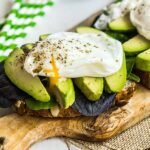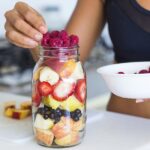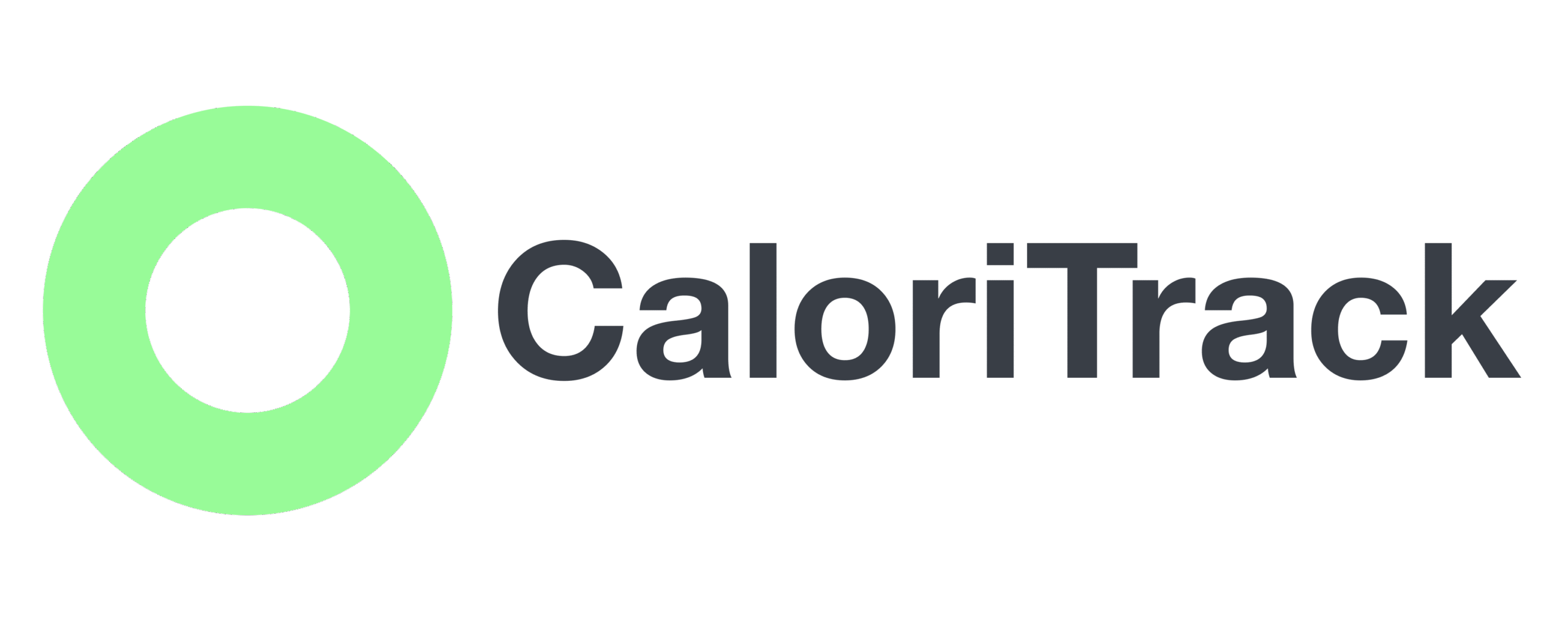
The Antacid Deception: Why Your Digestive “Patch” Is Worsening the Root Problem
Heartburn and reflux are universal discomforts, and for many, relief seems to be just a pill away. Antacids and proton pump inhibitors (PPIs) are incredibly effective at extinguishing the fire of heartburn, but this symptomatic relief is, in essence, a dangerous patch that conceals and exacerbates the underlying digestive dysfunction.
If you consume these medications regularly, it is crucial to understand how chronic treatment is creating a silent decline in your gut health, and what the real solutions are to attack the root cause.
1. The Hypochlorhydria Paradox: The Vicious Cycle of Low Acid
The popular belief is that reflux is caused by an excess of acid. However, research suggests that chronic heartburn is often a symptom of hypochlorhydria, meaning insufficient acid production.
Gastric acid (HCl) not only digests but acts as a key signal: a sufficiently low pH in the stomach is the signal for the Lower Esophageal Sphincter (LES), the valve between the stomach and the esophagus, to close properly .
The Antacid Trap: When acid levels are low, the LES does not seal effectively . If you take a PPI to reduce the burning, you are lowering the acid level even further. This, while relieving the symptom (less irritation), physiologically worsens the mechanical dysfunction of the LES, preventing the valve from closing correctly. The symptomatic patch thus perpetuates the failure that causes reflux, generating a dangerous dependence.
2. The Cascade of Dysfunctions: The Hidden Cost of Acid Suppression
By silencing the acidic environment of the stomach, essential biological functions are deactivated, triggering a cascade of problems:
- Impaired Primary Digestion: HCl is vital for denaturing proteins, making them digestible . With less acid, large protein molecules pass into the small intestine unprocessed, forcing the intestines to do extra work, which can lead to chronic inflammation and intestinal permeability.
- Micronutrient Malabsorption: Gastric acid is necessary to release micronutrients from food. Chronic use is pathophysiologically associated with the malabsorption of Vitamin B12 and Iron 1, a significant risk that, in the long term, can contribute to anemia and other health issues.
- Dysbiosis and Reflux Aggravation: Gastric acid is the first protective barrier, eliminating pathogens . By removing this defense, chronic PPI use promotes microbiota alteration (dysbiosis) and Small Intestinal Bacterial Overgrowth (SIBO) . The proliferation of bacteria ferments food, creating gases that increase intra-abdominal and luminal pressure. This internal pressure pushes stomach contents back into the esophagus, mechanically worsening the original reflux.
This vicious cycle explains why over 60% of chronic PPI use in some studies is considered inappropriate: the medication is perpetuating the disease .
3. Root Solutions: The Physiological Approach
Lasting healing requires moving from symptomatic management to correcting underlying physiological failures.
A. Restore Rest and Intestinal Cleansing
The key to counteracting dysbiosis and SIBO is restoring digestive rest:
- Intermittent Fasting (IF): Practicing time-restricted feeding (12 to 18 hours, incorporating sleep hours) is a powerful self-cleaning mechanism.3 During fasting, the Migrating Motor Complex (MMC) is activated, a muscular “sweeping wave” that cleans the small intestine of bacteria and residues, fighting SIBO .
B. Dietary Modification and the Acid-Alkaline Balance
Diet is the cornerstone for reducing internal pressure and inflammation:
- Cut Refined Flours and Glucose: Refined sugars and white flours have a high glycemic index and are highly fermentable, increasing gas production, systemic inflammation, and intra-abdominal pressure that exacerbates reflux.4
- The Importance of Healthy Fats and Bile: For proper digestion, the body must balance its most acidic substance (hydrochloric acid) with its most alkaline substance (bile), which neutralizes the acidic chyme leaving the stomach and entering the small intestine.5 Adequate bile release by the gallbladder is crucial for this balance and for fat absorption. To efficiently stimulate bile secretion, it is essential to consume healthy fats such as avocado, extra virgin olive oil, butter, and ghee.7 Conversely, harmful fats like fried foods, processed foods, and processed meats should be avoided.7
- Dairy Restriction: The recommendation is to limit high-fat and high-protein dairy. Casein, a large protein in milk, may be incompletely digested if gastric pH is low (due to drug use or primary hypochlorhydria) . Poorly digested proteins increase the intestinal load and can exacerbate inflammatory symptoms .
C. Elimination of Alcohol
- Eliminate Alcohol: Alcohol is a crucial risk factor. It acts in three ways: it directly relaxes the LES , stimulates acid production , and causes direct irritation and damage to the esophageal and stomach lining . Its suppression is fundamental for healing.
Reflux is not a medication deficiency but a sign of systemic dysfunction. The true solution lies in supporting digestive physiology through rest (fasting) and nutrition, allowing the body to reactivate its natural defense mechanisms.
Supporting Scientific Links and References
- Title: Pathophysiology and Current Statistical Validity of PPI Adverse Effects (Part 1)Description: Addresses the malabsorption of Vitamin B12 and Iron, and the risk of bone fractures due to chronic PPI use.URL: https://dialnet.unirioja.es/descarga/articulo/8865957.pdf
- Title: Pathophysiology and Current Statistical Validity of PPI Adverse Effects (Part 2)Description: Discusses the risk of micronutrient deficiency (Fe, B12) and Calcium due to prolonged PPI use.URL: https://dialnet.unirioja.es/descarga/articulo/8865957.pdf
- Title: Supplements for stomach and intestinal healingDescription: Benefits of Aloe Vera as an analgesic/anti-inflammatory and Glutamine to improve permeability and repair mucous membranes.URL:(https://www.google.com/search?q=http://www.youtube.com/watch%3Fv%3D7OD6aUDnlAE)
- Title: Incidence of gastroesophageal reflux disease following Helicobacter pylori eradication in MexicoDescription: Study on the high incidence of GERD (34.5%) after successful H. pylori eradication.URL: https://hospital.uas.edu.mx/revmeduas/articulos/v12/n4/erge.html
- Title: Prolonged use of antacids: Nutrient absorption and effects on the microbiotaDescription: Affirms the excessive prescription of PPIs and their association with nutrient malabsorption and enteric infections.URL: https://www.palig.com/es/us/wellness-hub/p/uso-prolongado-de-antiacidos-absorcion-de-nutrientes-y-efectos-en-la-microbiota-nuevas-respuestas
- Title: Alcohol causes reflux: Everything you need to knowDescription: Explains the effects of alcohol: LES relaxation, increased acid production, mucosal irritation, and delayed gastric emptying.URL: https://farmakonsuma.com/es/el-alcohol-causa-reflujo-todo-lo-que-necesitas-saber/
- Title: Intermittent fasting: benefits and contraindicationsDescription: Describes time-restricted feeding (12-18 hours), the most commonly followed type, which utilizes sleep hours. Daily fasting can lead to better digestion.URL: https://lidiasanchez.com/ayuno-intermitente-beneficios-y-contraindicaciones/
- Title: Small intestinal bacterial overgrowth (SIBO)Description: Explains that the low bacterial count in the small intestine is maintained by normal gastric acid secretion and peristalsis (MMC).URL:(https://www.merckmanuals.com/es-us/professional/trastornos-gastrointestinales/s%C3%ADndromes-de-malabsorci%C3%B3n/sobrecrecimiento-bacteriano-en-el-intestino-delgado)
- Title: Hypochlorhydria: LES does not closeDescription: Explains that with hypochlorhydria, acid descends, and the lower esophageal sphincter (LES) “does not close,” causing reflux.URL: https://pniespana.es/malas-digestiones-hipoclorhidria-desde-la-pni-clinica-ii/
- Title: Hypochlorhydria: LES does not closeDescription: Reinforces the concept that low acidity prevents the effective closure of the sphincter, causing the sensation of reflux.URL: https://pniespana.es/malas-digestiones-hipoclorhidria-desde-la-pni-clinica-ii/#:~:text=Con%20la%20hipoclorhidria%20el%20%C3%A1cido,reflujo%20y%20molestia%20tan%20impertinente.
- Title: Prolonged use of antacids: Nutrient absorption and effects on the microbiotaDescription: Assures that there is excessive prescription of PPIs and associates their long-term use with poor nutrient absorption and enteric infections.URL: https://www.palig.com/es/us/wellness-hub/p/uso-prolongado-de-antiacidos-absorcion-de-nutrientes-y-efectos-en-la-microbiota-nuevas-respuestas
- Title: Function of hydrochloric acid in digestionDescription: Describes the role of HCl: activating enzymes (pepsin), denaturing proteins, and eliminating pathogens (acid sterilization barrier).URL: https://www.hivital.com/hipoclorhidria/
- Title: Suffering from heartburn due to alcoholDescription: Alcohol directly damages the esophageal/gastric mucosa, increases acid production, and relaxes the LES; it is recommended to avoid it 2-3 hours before bedtime.URL: https://www.alka-seltzer.com.mx/deshidratacion-por-exceso-de-bebidas-alcoholicas/sufrir-agruras-por-alcohol
- Title: Proton pump inhibitors decrease intestinal flora diversity and increase the risk of complicationsDescription: Mayo Clinic study associating PPIs with decreased intestinal flora diversity.URL: https://newsnetwork.mayoclinic.org/es/2014/12/03/los-inhibidores-de-la-bomba-de-protones-disminuyen-la-diversidad-de-la-flora-intestinal-y-eso-aumenta-el-riesgo-de-complicaciones/
- Title: Refined sugars and flours: invisible enemies of our metabolic healthDescription: Explains how the high glycemic index of refined flours and sugars causes blood glucose spikes and systemic inflammation.URL: https://higeasaludintegral.com/azucares-y-harinas-refinadas-enemigos-invisibles-de-nuestra-salud-metabolica/
- Title: Acid reflux diet: What to eat and what to avoidDescription: Notes that egg whites are a good choice but limits yolks due to their high-fat content which can trigger reflux symptoms.URL: https://www.healthline.com/health/es/alimentos-para-reflujo-acido
- Title: Dysbiosis: what it is and how to restore balance in your gutDescription: Points out that dysbiosis (microbial imbalance) can cause heavy digestion, heartburn, reflux, chronic inflammation, and nutrient malabsorption.URL: https://www.iberoflora.com.ec/disbiosis-que-es-y-como-restaurar-el-equilibrio-en-tu-intestino/
- Title: Over-prescription of proton pump inhibitorsDescription: Denounces the over-prescription of PPIs and the high rate of inappropriateness (exceeding 60% in many countries); PPIs are preferred in 95% of GERD cases.URL:(https://scielo.isciii.es/scielo.php?pid=S1130-01082013000300001&script=sci_arttext&tlng=es)
- Title: Alcohol and heartburn: How alcohol interferes with digestionDescription: Alcohol reduces the LES’s ability to function, causing it to relax, and can increase the amount of stomach acid released.URL: https://www.nexium24hr.com/es/entender-acidez/acidez-causas-y-desencadenantes/alcohol-y-acidez/Title: Function of hydrochloric acid in digestion Description: Describes the role of HCl: activating enzymes (pepsin), denaturing proteins, and eliminating pathogens (acid sterilization barrier). URL: https://www.hivital.com/hipoclorhidria/
- Title: Small intestinal bacterial overgrowth (SIBO) Description: Explains that the low bacterial count in the small intestine is maintained by normal gastric acid secretion and peristalsis (MMC). URL: (https://www.merckmanuals.com/es-us/professional/trastornos-gastrointestinales/s%C3%ADndromes-de-malabsorci%C3%B3n/sobrecrecimiento-bacteriano-en-el-intestino-delgado)
- Title: Refined sugars and flours: invisible enemies of our metabolic health Description: Explains how the high glycemic index of refined flours and sugars causes blood glucose spikes and systemic inflammation. URL: [https://www.google.com/search?q=https://higeasaludintegral.com/azucares-y-harinas-refinadas-enemigos-invisibles-de-nuestra-salud-metabolica/](https://www.google.com/search?q=https://higeasaludintegral.com/azucares-y-harinas-refinadas-enemigos- invisibles-de-nuestra-salud-metabolica/)
- Title: Hypochlorhydria: LES does not close Description: Explains that with hypochlorhydria, acid descends, and the lower esophageal sphincter (LES) “does not close,” causing reflux. URL: https://pniespana.es/malas-digestiones-hipoclorhidria-desde-la-pni-clinica-ii/
- Title: Hypochlorhydria: LES does not close Description: Reinforces the concept that low acidity prevents the effective closure of the sphincter, causing the sensation of reflux. URL: https://pniespana.es/malas-digestiones-hipoclorhidria-desde-la-pni-clinica-ii/#:~:text=Con%20la%20hipoclorhidria%20el%20%C3%A1cido,reflujo%20y%20molestia%20tan%20impertinente
- Title: The Impact of Alcohol on Reflux Description: Explains the effects of alcohol: LES relaxation, increased acid production, mucosal irritation, and delayed gastric emptying. URL: https://farmakonsuma.com/es/el-alcohol-causa-reflujo-todo-lo-que-necesitas-saber/












